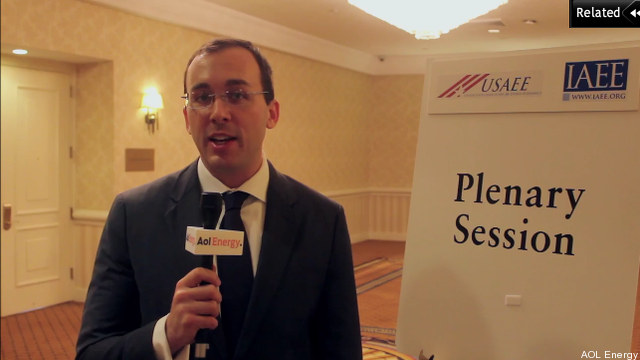
“Fair price” pronouncements by OPEC officials are ineffective at influencing crude oil market movements, according to research presented at the US Association of Energy Economics conference in Washington, DC on 10 October.
A study of “fair price” pronouncements by OPEC officials from March 2000 to late November 2010 suggests that they have little impact on nearby crude oil futures prices, according to a study presented by Michel Robe, associate professor at American University’s Kogad School of Business.
The study, co-authored by Robe, International Energy Agency’s Bahattin Buyuksahin, Celso Brunetti from Johns Hopkins University, and Kirsten Soneson from the CFTC, looked at whether statements by OPEC officials regarding a “fair price” for crude oil provided market information not already reflected by crude oil futures prices.
“If fair price pronouncements contain any news for non-Opec oil market participants — signals about physical market conditions…or signals about what a particular country or set of countries wants to do about output — then we should observe an impact on futures prices,” said Robe.
“We find that fair price pronouncements add little to pre-existing information and have little impact on the futures market price of crude oil,” Robe said.
The paper’s findings, if correct, call into question whether news agencies, market commentators and oil analysts should use fair price statements to provide insight into crude oil futures markets or indications of price direction, according to Robe.
He noted that during an oil price increase in 2008, when West Texas Intermediate (WTI) prices shot past $140 per barrel, market commentators attributed disparity between the market price and a lower “fair price” as stated by various Opec member countries to factors other than physical demand and supply.
“Implicit in those views is the idea that Opec-related fair price announcements have some information content that is not already reflected in market prices,” Robe said.
And since there is no definition of a “fair price” for oil, the quoted price is “the price that the Opec member would like to see prevail in the market”, rather than an objective assessment of a price that reflects a market equilibrium, said Robe.
Though the “fair price” study’s results suggest that Opec officials’ public statements regarding a fair oil price do not impact nearby futures prices, they do not indicate that Opec members have no other tools at their disposal. The study does not have any implications for other market signals, such as Opec’s regular public updates on production targets.
Such market signals are essential tools for countries like Saudi Arabia, Opec’s biggest oil producer and the world’s largest oil exporter, which uses them to try to guide oil prices to levels that can sustain both consumer demand and producer profits, according to King Saud University associate professor of economics Nourah AlYousef.
“A dominant supplier has a choice: it can achieve short-run profits by raising price at the expense of losing its dominance in the future, or it can charge a moderate price that supports its market share and generates high competitive profits over time,” according to Yousef’s research.
“If the supplier engages in the latter strategy, then it will try to lead the market by signaling the price it strives to maintain,” it said.
Saudi Arabia’s economy relies heavily on income from its oil sector, which accounted for 85% of the country’s revenues in 2009, she said. While a sharp rise in oil prices might boost revenues in the short term, a sustained elevated price can make alternatives to petroleum more competitive, and do longer-term damage to overall oil demand.
“To preserve the importance of oil in the global energy mix, Saudi Arabia has tried to moderate the price of oil and thereby continue the growth of demand,” said Yousef.
Photo Caption: (Left-Right) Nigeria’s head of delgation and OPEC Chairman Goni Musa Sheikh, Iran’s head of delegation OPEC President Mohammad Aliabadi and Secretary General of OPEC, Abdullah El-Badri from Libya open the 159th meeting of OPEC Conference in OPEC headquarters in Vienna on June 8, 2011.
Keep reading →








